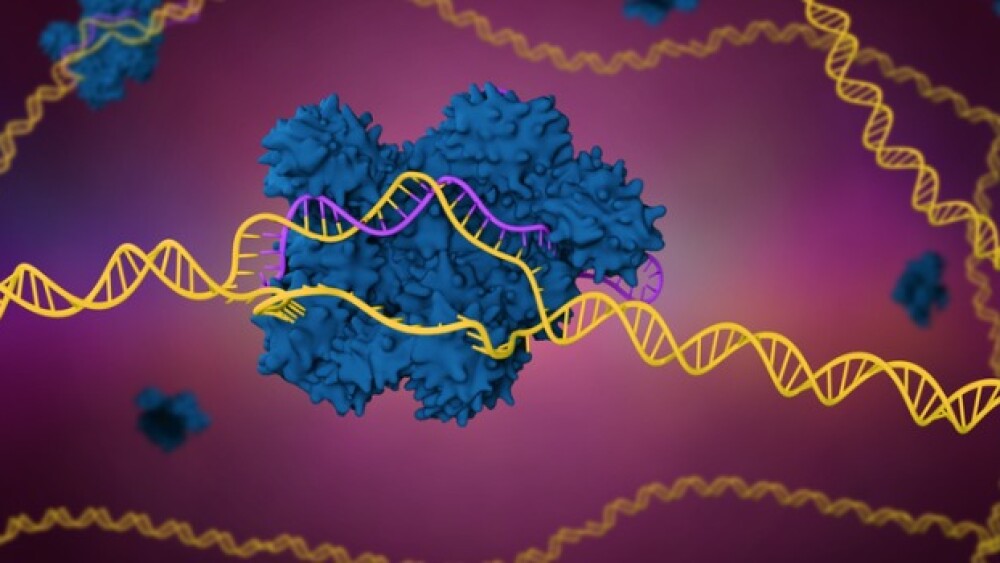The companies are expanding their long-standing CRISPR/Cas9 gene editing collaboration for the second time, now seeking to target neurological and muscular conditions.
Pictured: Illustration of a CRISPR-Cas9 system conducting edits on a DNA strand/iStock, Meletios Verras
Regeneron on Tuesday announced it is expanding an existing collaboration agreement with Intellia Therapeutics to develop CRISPR-based gene editing therapies targeting neurological and muscular diseases.
The expanded agreement will combine Regeneron’s proprietary delivery systems and antibody-targeted adeno-associated viral (AAV) vectors with Intellia’s Nme2 CRISPR/Cas9 gene editing technologies.
The partners will initially focus on two in vivo non-liver targets, with each company having the opportunity to lead the development and commercialization of candidates for one target. Meanwhile, the company that is not taking the lead will have to option to sign a co-development and co-commercialization agreement for that target.
Genetic medicines have emerged as an attractive therapeutic modality, though their widespread use “has generally been limited by the inability to deliver a genetic payload to cells of interest in the body beyond the liver,” Aris Baras, Regeneron’s senior vice president and co-head of genetic medicines, said in a statement.
“This expansion of our longstanding and productive collaboration with Intellia is taking advantage of new technology and innovations to unlock these opportunities,” Baras said.
Regeneron and Intellia first inked their CRISPR collaboration in April 2016. For $75 million upfront and the promise of “significant” milestone and royalty payments, Regeneron invested in Intellia’s gene editing platform, which makes use of the CRISPR/Cas9 system either as the therapy itself in the company’s in vivo programs, or as a tool to create therapeutic engineered human cells in its ex vivo programs.
The partners directed their focus to transthyretin amyloidosis, for which they have developed the investigational gene editing therapy NTLA-2001. In June 2021, the companies unveiled strong interim Phase I data showing that a single infusion of the candidate could greatly reduce levels of the disease-causing protein without triggering serious safety concerns.
“These are the first ever clinical data suggesting that we can precisely edit target cells within the body to treat genetic disease with a single intravenous infusion of CRISPR,” Intellia CEO John Leonard said at the time.
Regeneron also expanded the partnership in June 2020 for $70 million in an upfront payment, adding hemophilia A and B to the list of targets. The companies are currently undergoing Investigational New Drug-enabling work for the hemophilia B candidate, while the hemophilia A program is still in its early research phases, according to Intellia’s website.
Tristan Manalac is an independent science writer based in Metro Manila, Philippines. He can be reached at tristan@tristanmanalac.com or tristan.manalac@biospace.com.






